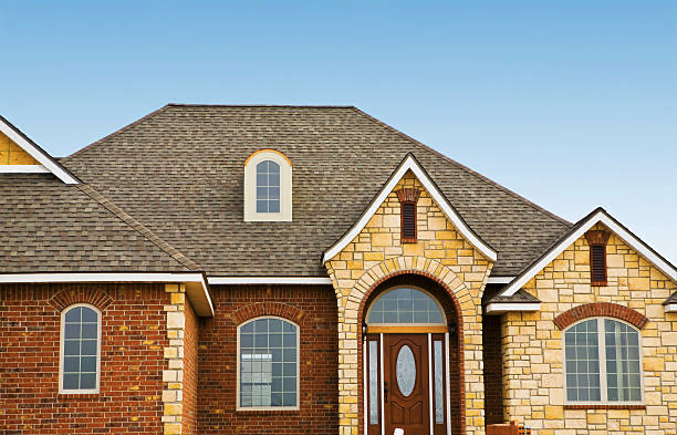
Imagesource
Selecting the right windows for your home can be overwhelming with so many options available. Whether you're building a new home or replacing old windows, making the right choice is crucial for your home's appearance, energy efficiency, and overall comfort. This guide will help you navigate the process, ensuring you make an informed decision. Visit https://www.craftsmencontractors.com/ to explore various options and find what's best for your needs.
1. Understanding Window Materials
One of the first decisions to make when choosing windows is selecting the material. Each material has its pros and cons, which can affect the window's durability, maintenance needs, and cost.
- Vinyl: Vinyl windows are popular for their affordability and low maintenance. They are resistant to moisture and do not require painting or sealing. However, they may not offer the same aesthetic appeal as other materials.
- Wood: Wood windows provide a classic look and excellent insulation. They can be painted or stained to match your home's décor. The downside is that they require regular maintenance to prevent rot, warping, and insect damage.
- Aluminum: Aluminum windows are strong, lightweight, and often used in modern or industrial-style homes. They require minimal maintenance, but they are less energy-efficient compared to other materials due to their high conductivity.
- Fiberglass: Fiberglass windows are durable, energy-efficient, and can be painted like wood. They expand and contract at the same rate as the glass, reducing the likelihood of seal failure. However, they are more expensive than vinyl and aluminum options.
2. Considering Window Styles
The style of window you choose will impact both the look of your home and its functionality. Different styles offer various benefits, depending on your needs and the room's requirements.
- Single-Hung and Double-Hung Windows: These are traditional styles with one or both sashes moving vertically. Double-hung windows are more versatile as both sashes can open, improving ventilation.
- Casement Windows: Casement windows are hinged on one side and open outward like a door. They provide excellent ventilation and a clear view, but they might not be ideal for areas with high foot traffic outside the window.
- Sliding Windows: Sliding windows have sashes that move horizontally. They are easy to operate and ideal for wide openings, but they may not provide as much ventilation as other styles.
- Bay and Bow Windows: These windows project outward from the home's exterior, creating a small shelf or additional space inside. They allow more natural light and can make a room feel larger. However, they are more complex to install and can be more expensive.
3. Prioritizing Energy Efficiency
Energy-efficient windows can significantly reduce your heating and cooling costs. When selecting windows, consider the following features to enhance energy efficiency:
- Low-E Glass: Low-emissivity (Low-E) glass has a special coating that reflects heat while allowing light to pass through. This helps keep your home warm in the winter and cool in the summer.
- Double or Triple Glazing: Windows with two or three layers of glass provide better insulation than single-pane windows. The space between the panes is often filled with gas, such as argon or krypton, to improve insulation.
- Gas Fills: The gas between the glass panes reduces heat transfer, making your windows more energy-efficient. Argon is the most common, but krypton offers better performance, especially in thinner spaces.
- Window Frames: The material of your window frame also affects energy efficiency. Wood and fiberglass frames typically offer better insulation than aluminum.
4. Assessing Security and Noise Reduction
Windows play a crucial role in home security and noise reduction. Here’s what to consider:
- Laminated Glass: Laminated glass consists of two or more layers of glass with a layer of plastic between them. It offers enhanced security as it is more difficult to break. It also reduces noise, making it ideal for homes in noisy areas.
- Multiple Locking Points: Windows with multiple locking points offer better security than those with a single lock. This feature makes it more difficult for intruders to force the window open.
- Acoustic Glass: If noise reduction is a priority, consider windows with acoustic glass. These windows are designed to reduce the amount of noise that enters your home, creating a quieter environment.
5. Budgeting and Installation
Finally, your budget will play a significant role in your decision-making process. While it's tempting to opt for the cheapest option, remember that investing in high-quality windows can save you money in the long run through reduced energy costs and less frequent replacements. For homeowners in need of durable and energy-efficient windows Fayetteville NC offers a variety of options that combine quality with professional installation.
When it comes to installation, hiring a professional is essential. Proper installation ensures that your windows perform as intended, offering the best energy efficiency, security, and durability. Poor installation can lead to issues like drafts, leaks, and reduced lifespan of the windows.
